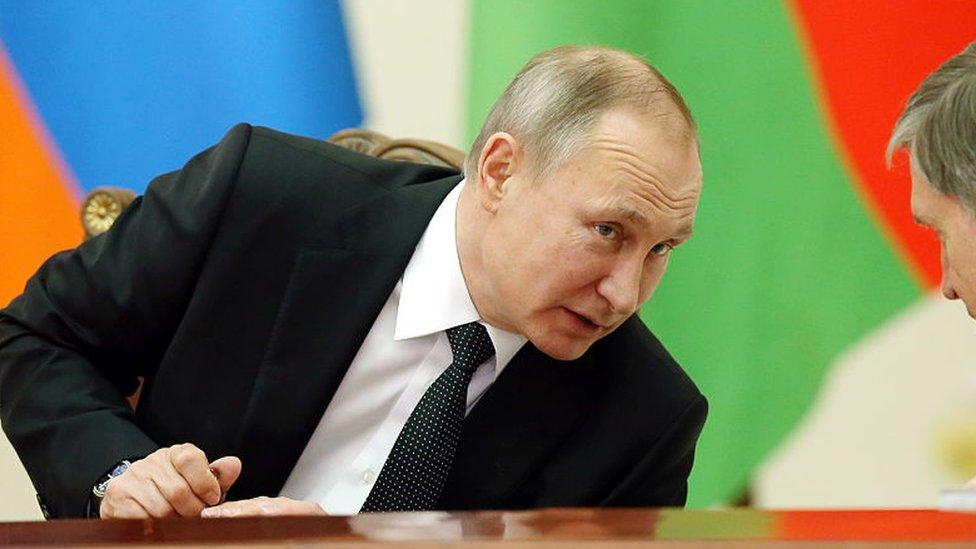Trump 'willing to work with Russia and China'
- Published
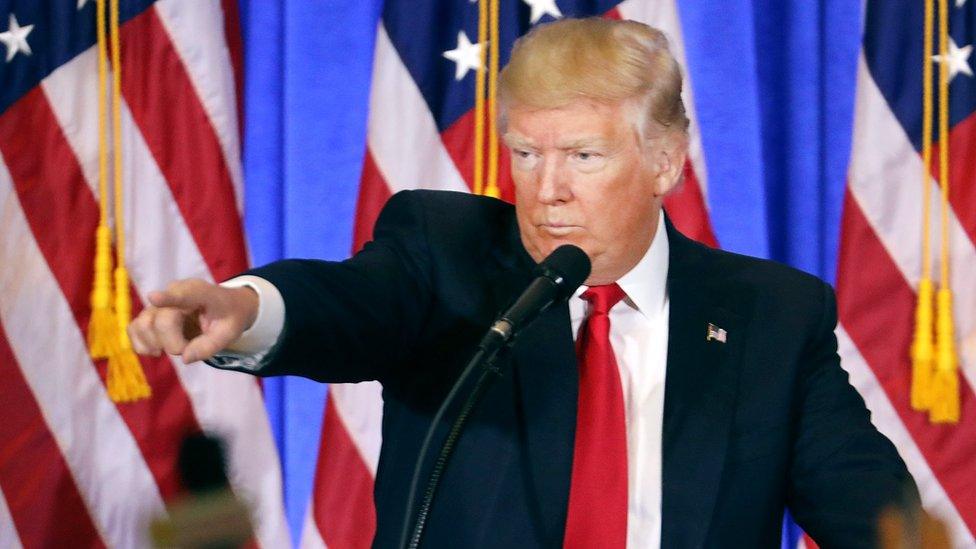
President-elect Donald Trump set out some pointers on his foreign policy
US President-elect Donald Trump says he is willing to work with Russia and China, providing they cooperate.
Mr Trump told the Wall Street Journal that newly-imposed sanctions on Russia would remain "at least for a period of time" but could then be lifted.
He also said the One China policy, in which the US does not recognise Taiwan, was up for negotiation.
Meanwhile, a US Senate committee announced it would investigate claims Russia meddled in the election.
In his interview, external, Mr Trump said sanctions on Russia could be lifted if Moscow helped Washington in the war against Islamic extremism and in other matters.
"If you get along and if Russia is really helping us, why would anybody have sanctions if somebody's doing some really great things?"
He said he hoped a meeting with President Vladimir Putin would be arranged.
With regards to Beijing, Mr Trump said China had to allow US companies to compete by floating its currency.
But he said he would not label China a currency manipulator the instant he took office.
He had already questioned the One China policy last month, provoking angry responses in Chinese state media.
'Full understanding'
On Friday, the two most senior members of the Senate Intelligence Committee - made up of both Republicans and Democrats - announced it would launch an inquiry into Russian actions during the election, external.
The group routinely oversees intelligence on Russia, it said, but recent events raised "profound concerns" - leading to the formal probe.
It comes a week after the release of a report, which said that Russian President Vladimir Putin had likely attempted to influence the election.
Members of both the current US administration and President-elect Donald Trump's team will be interviewed as part of the investigation.
The committee vowed to follow the evidence "wherever it leads", as it examines Russia's cyber activity and intelligence practices.
In the statement, it said: "We believe that it is critical to have a full understanding of the scope of Russian intelligence activities impacting the United States."
The committee will examine whether there were any contacts between Russia and people associated with the US political campaigns.
It said subpoenas would be issued "if necessary to compel testimony".
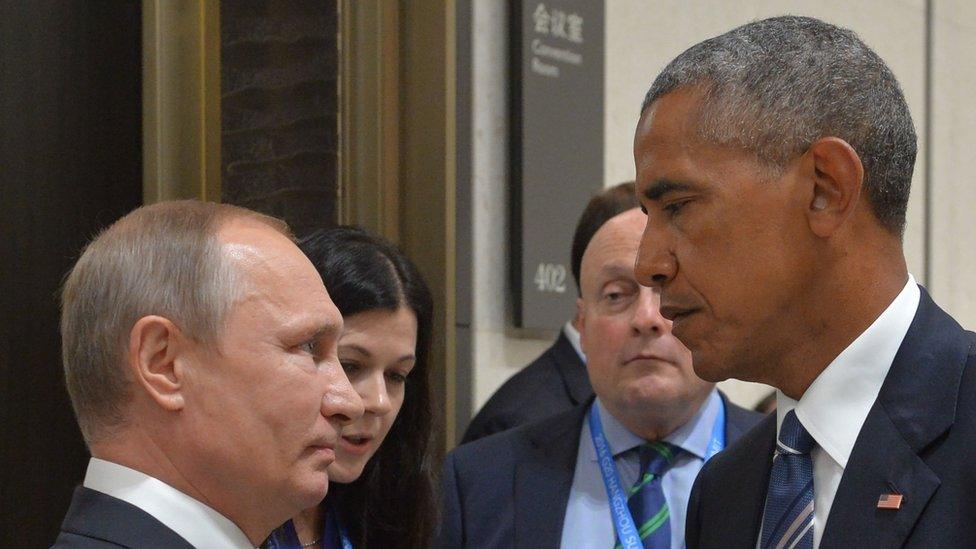
Russian President Vladimir Putin (left) and US President Barack Obama had generally frosty relations
The bulk of the work will be done behind closed doors, although the senators say they will hold open hearings when possible.
"The committee will follow the intelligence wherever it leads. We will conduct this inquiry expeditiously, and we will get it right," said the statement.
The senators said they would produce both classified and unclassified reports on their findings.
Trump's 'Russian dossier' – what we know and what we don't
Trump investigates
Earlier this week, details emerged of an unproven dossier alleging that Russian security officials have compromising material on Mr Trump, which could make him vulnerable to blackmail.
The US president-elect said the claims were "fake news" and "phoney stuff".
He announced that his team would produce its own "report on hacking" within 90 days.
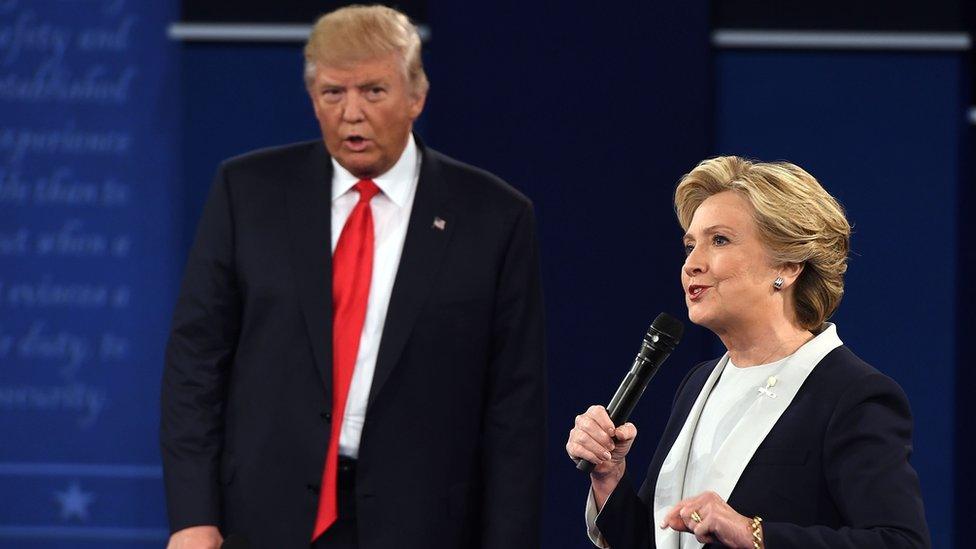
Russia is accused of trying to damage the campaign of presidential nominee Hillary Clinton in favour her rival, Donald Trump
The US released an unclassified intelligence report earlier this month, claiming that Russian President Vladimir Putin had ordered the hacking of Democratic Party emails to damage Mr Trump's Democrat rival, Hillary Clinton, and influence the election.
It also said Russia had used state-funded propaganda and paid social media users, or "trolls", to launch online attacks.
In December, US President Barack Obama expelled 35 Russian diplomats from the country in response to the hacking allegations.
Russia says allegations that it ran a hacking campaign to influence the US presidential elections are "reminiscent of a witch-hunt".
- Published14 December 2016
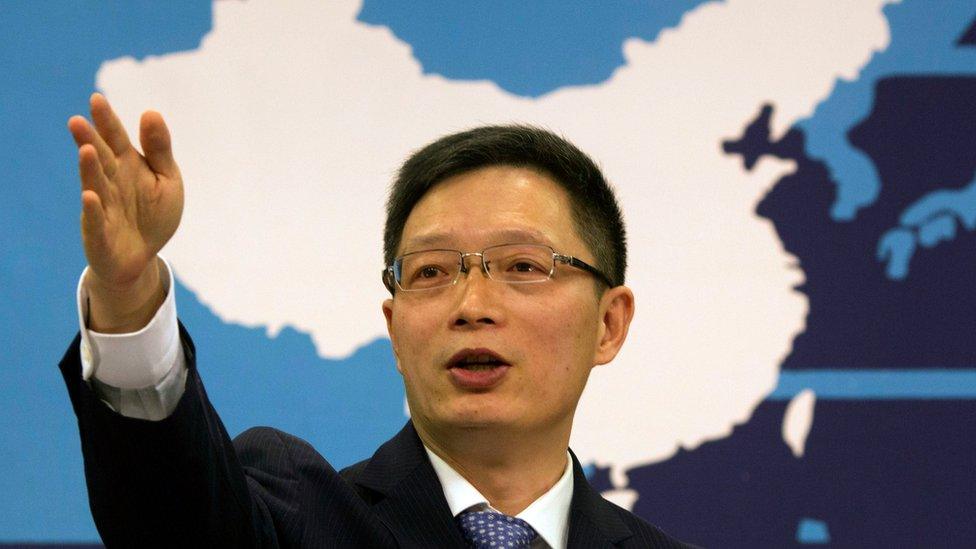
- Published11 January 2017
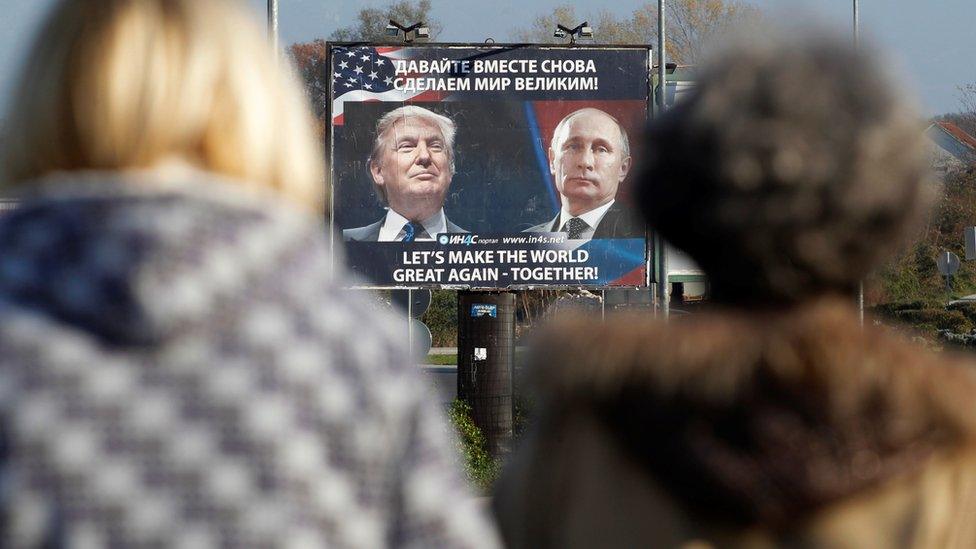
- Published14 January 2017
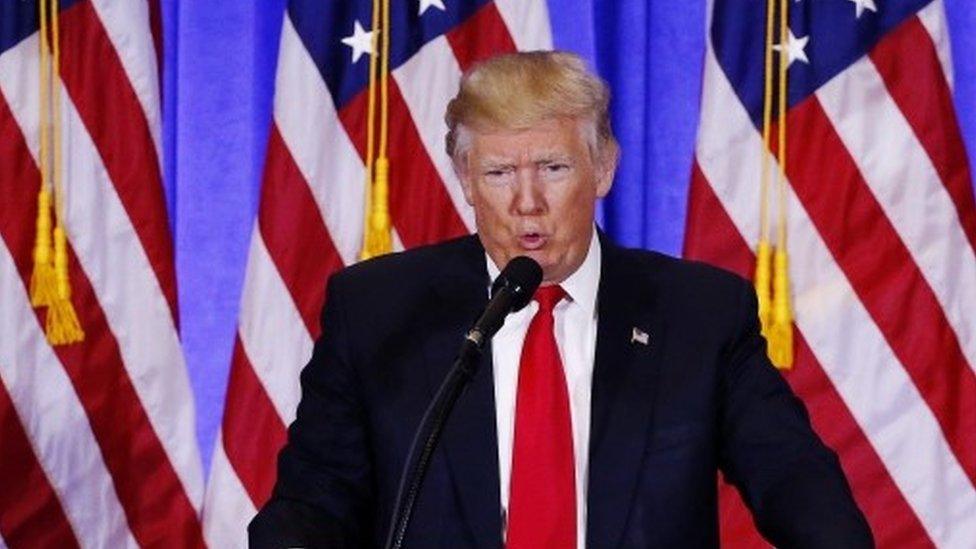
- Published12 December 2016
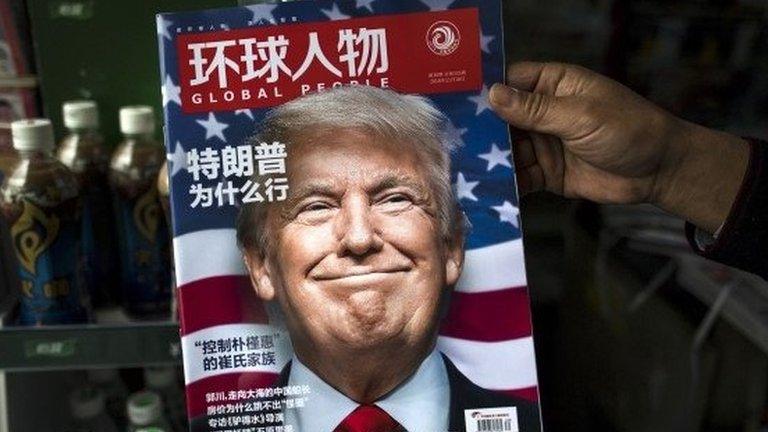
- Published6 January 2017
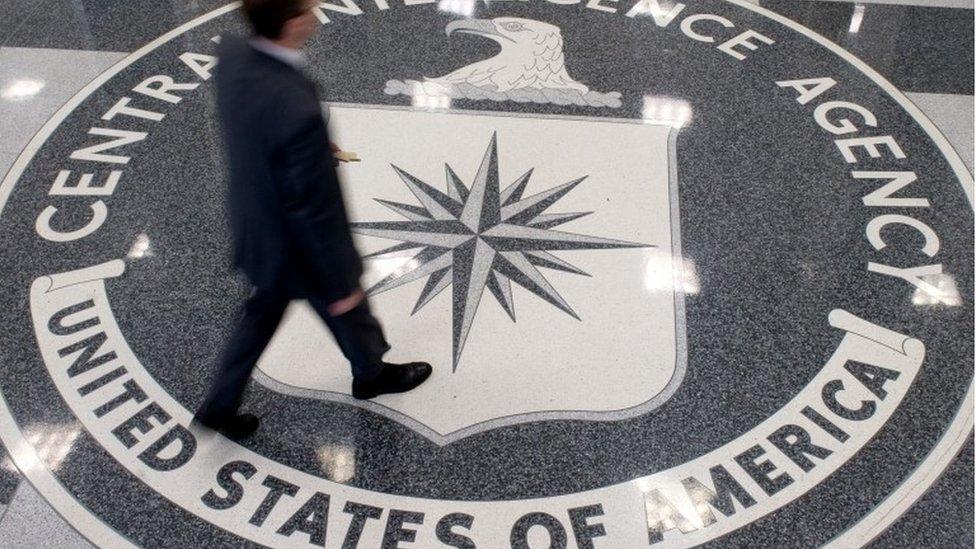
- Published7 January 2017
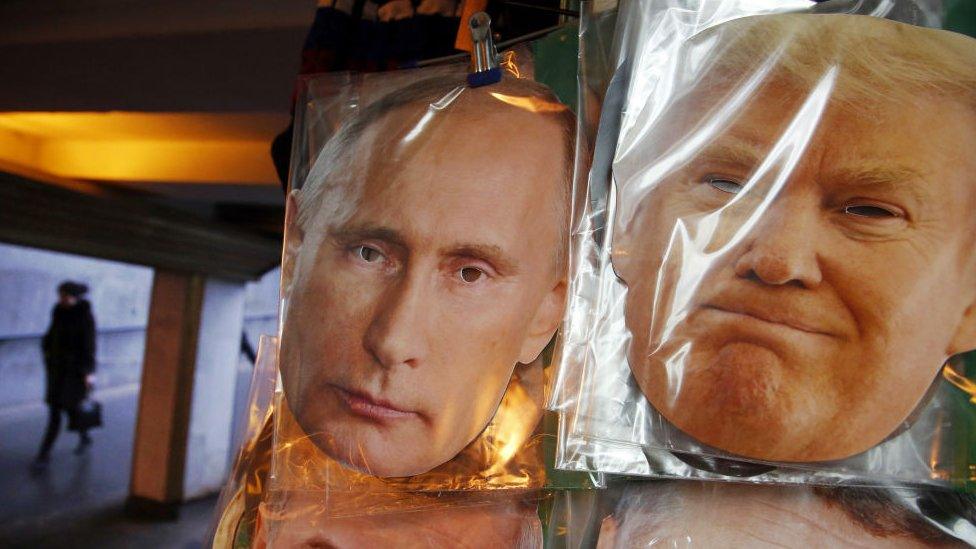
- Published9 January 2017
